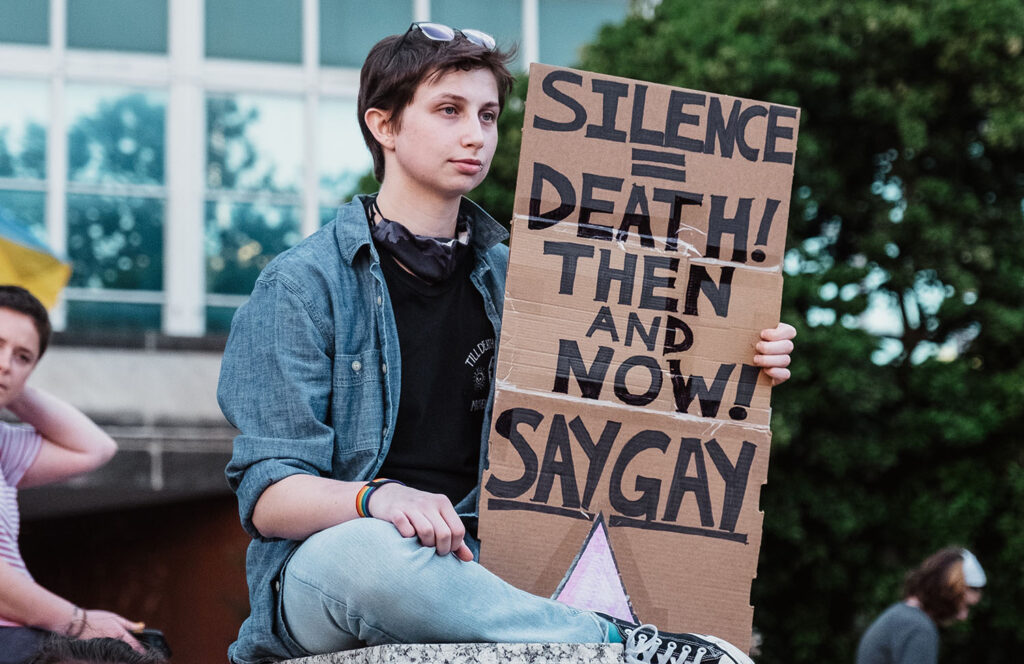“Being a good LGBTQ+ ally isn’t so much about slapping rainbow branding onto a product as it is amplifying queer life experiences,” according to this piece in Vox by Ana Valens, a queer trans woman who has covered LGBTQ+ politics for five years.
Offer financial support
“I think for anyone, direct financial support for LGBTQ people — especially black and brown trans women — is the number one way to support this community’s most marginalized members,” says Lucy Diavolo, Teen Vogue’s politics news editor.
Uplift the most marginalized in the community
“I think it’s best to show up and celebrate those who [are] typically most marginalized within queer spaces and media, e.g., trans and gender-nonconforming people, people of color, sex workers, poor and undocumented people,” says José Sanchez, a Queer Caucus and Organizing Committee member of the Central Brooklyn Democratic Socialists of America branch. “I think a lot of people lose sight of the fact that people of color are more likely to identify as queer than whites, and that we suffer disproportionately and systematically from poverty, unemployment, and other economic issues.”
Understand the adversity LGBTQ people face
“Allies outside the LGBTQ community also have an important role to play by focusing on the various intersections between the LGBTQ community, sex work, policing, labor rights, immigration discrimination, and housing rights, among many other issues,” says Valens.
Make room for LGBTQ people to exist
Being a good LGBTQ ally also means supporting the community’s artists, hosting panels for queer sex educators, or providing a meet-and-greet space for the most marginalized identities.
Do more than just show up for Pride
Pride Month should be celebratory, but it should always center the queer community’s resilience, its struggle to survive, and the issues that impact all of its members — and do so all year long.

